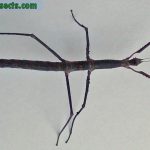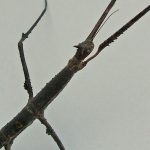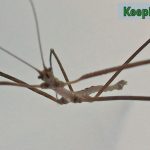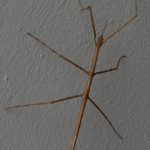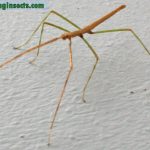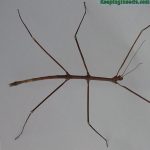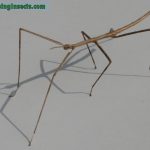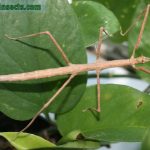The Annam stick insect or Annam Walking Stick (Medauroidea extradentata) is a large and thin stick insect that can be kept as a pet. Originally is occurs in Vietnam. It’s any easy to keep stick insect that is interesting because of it’s weird body shape. Males and females look different too, which is an interesting extra characteristic that makes the Annam stick insect different then for example the Indian stick insect.
The Latin name of this species is Medauroidea extradentata. The PSG number of this species is psg 5.
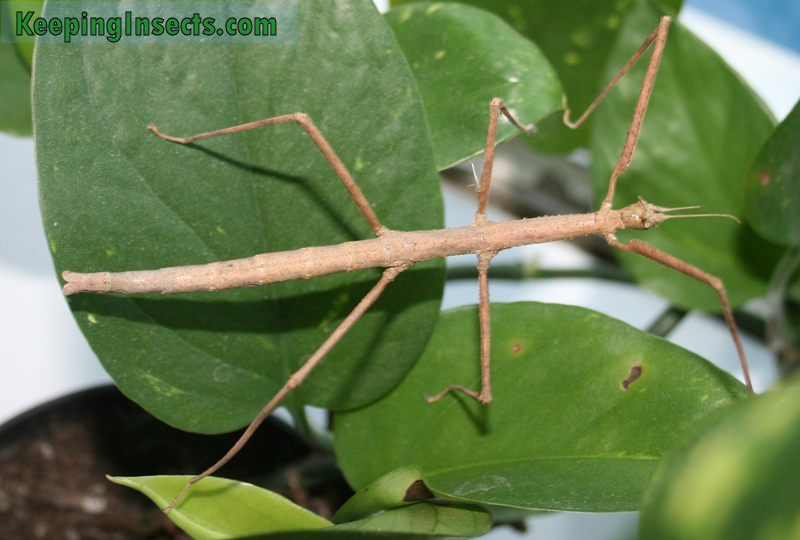
Adult female Annam Stick Insect – Medauroidea extradentata
Appearance
An adult female Annam stick insect has a long and thin body without any appendages. The body is brown and looks like it has a rough structure, similar to wood. On her head she has two horns, a camouflage that mimics thorns on branches. Her legs also have some structures that look a like thorns or like rough bark. All these thorns are not actually sharp, it’s just a way to camouflage the body of the insect. An adult male Annam stick insect is even thinner than the female and has a smooth looking body and legs. The female has much shorter antennae than the male. Both sexes will reach a body length of around 9 cm (3 inches).
The nymphs (not yet adult stick insects) have a smooth looking skin. When young their legs are bright green and their body is light brown. When they get older they will be light brown all over. Some will develop a completely green body when young, but when adult this all converts to different shades of brown.
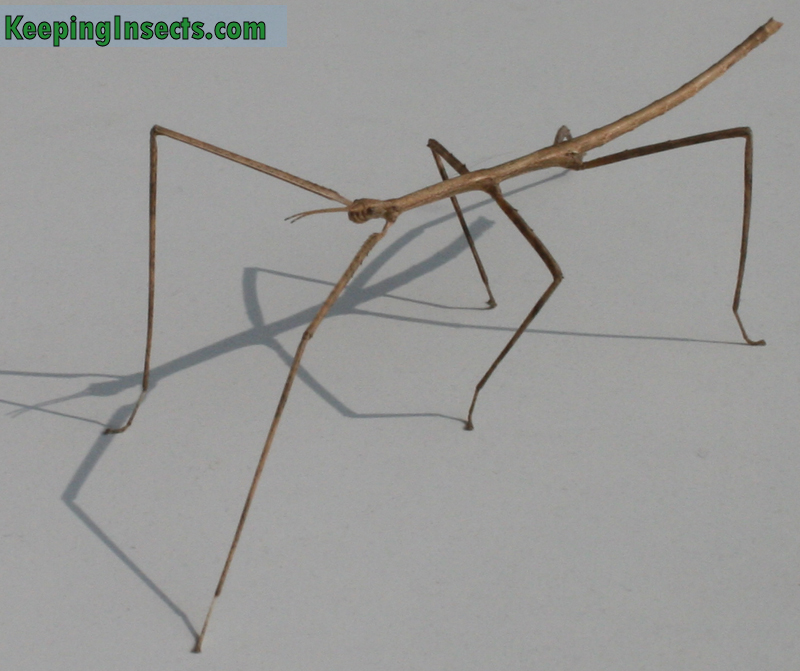
Young nymph of Medauroidea extradentata
Behavior of the Annam stick insect
The stick insects are very docile and non-aggressive. This species is night-active, like most stick insects. During the day they don’t move around a lot. When you pick one up it will walk slowly. Sometimes it will pretend to have died, keeping its legs tight against its body. After a while it will give up its facade and will start walking again.
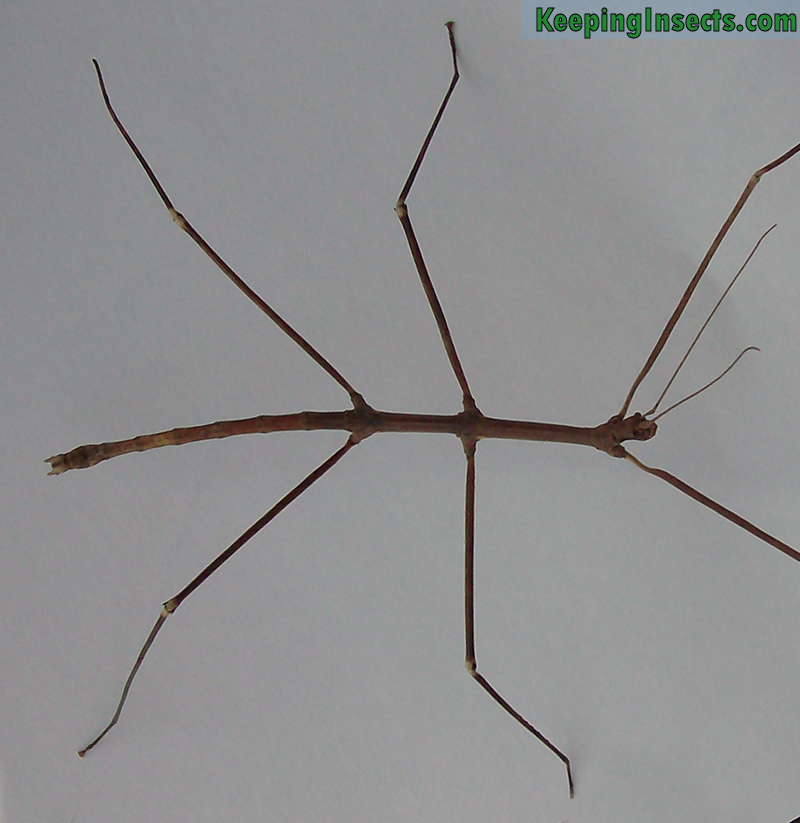
Adult male Annam Stick Insect – Medauroidea extradentata
Food for Medauroidea extradentata
This stick insect can be fed with fresh leaves of bramble, oak, hazelnut, rose and raspberry. How to present these fresh leaves to them? Read our general instruction here. Don’t feed plants that have been treated with insecticide, like rose leaves from flower bouquets.
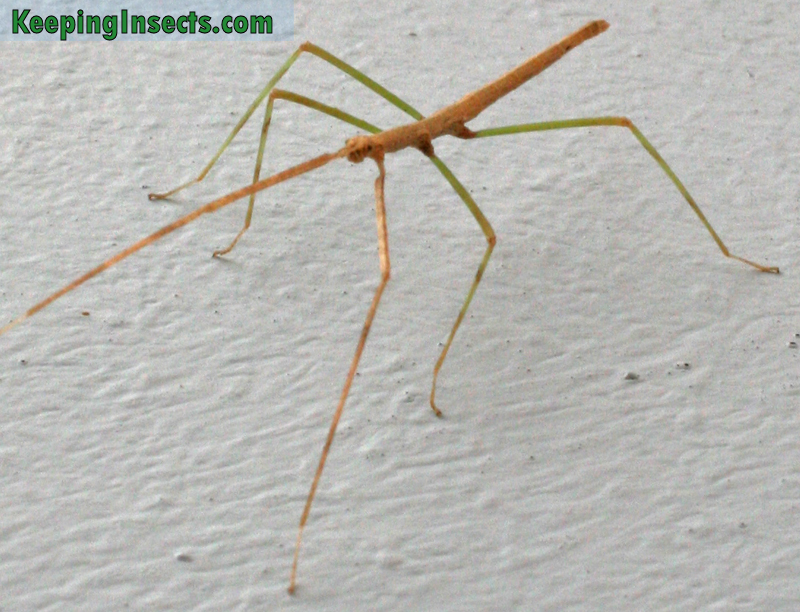
This young nymph has green legs and a brown body
Environmental conditions
Annam stick insect is a very easy stick insect that does not need a lot of special conditions. Just don’t make the temperature of humidity to extreme. Temperatures between 20 °C and 30 °C re perfect. In the night it’s okay to have it drop to 15 °C if necessary. Stray the enclosure of this stick insect with water every 2 or 3 days. This allows the insects to drink and to keep the air humidity up. If you notice that the stick insects drink a lot or have trouble shedding their skin you could spray them more often, e.g. every day.

Medauroidea extradentata adult female seen from the side
Breeding Annam stick insects
It’s easy and fun to breed Annam stick insects. This species is parthenogenic, which means one female will lay eggs that hatch normally and will develop into females. In captivity you can also find males. If you mate a male and a female, the eggs will also give rise to males and females.
The eggs are quite small, oval in shape and grey in color. Keep the eggs in a small container on top of moist paper. Let the paper dry and then spray it again with water. After 5 to 8 weeks at 20 – 27 °C the eggs will hatch. Don’t keep too many eggs, because almost all eggs will hatch and it will be hard to take proper care of all the young stick insects. It’s better to remove the eggs than to have 50 too many baby stick insects to take care of!
More pictures of the Annam Stick Insect
Click to enlarge
- Annam stick Insect
- This young nymph has green legs and a brown body
- Adult male Annam Stick Insect – Medauroidea extradentata
- Young nymph of Medauroidea extradentata

